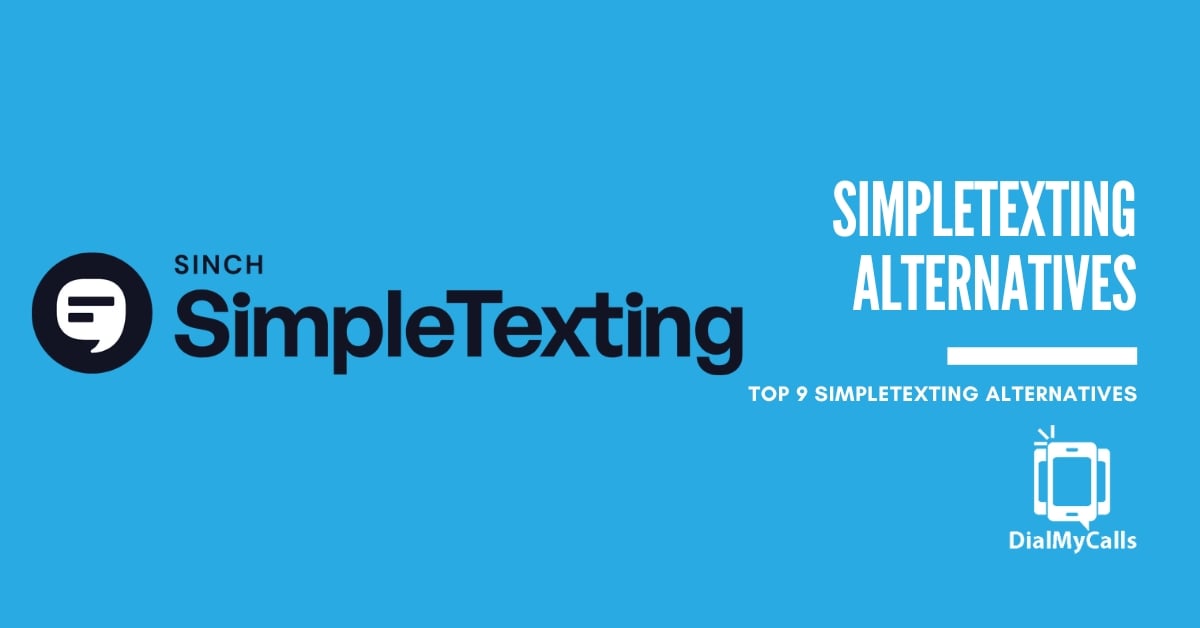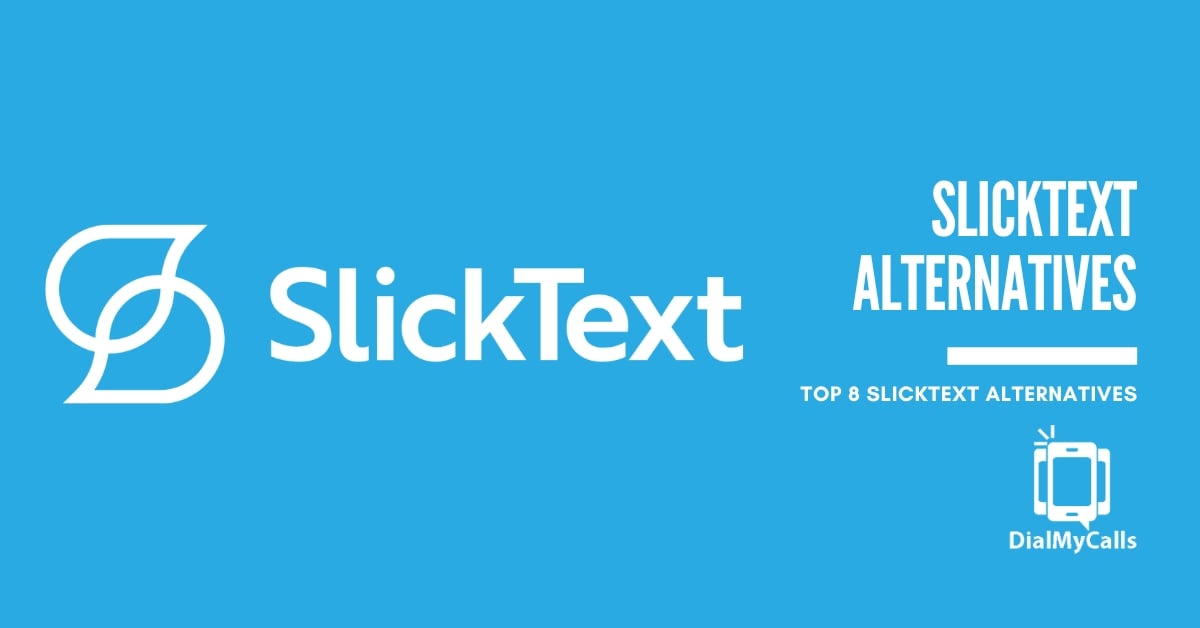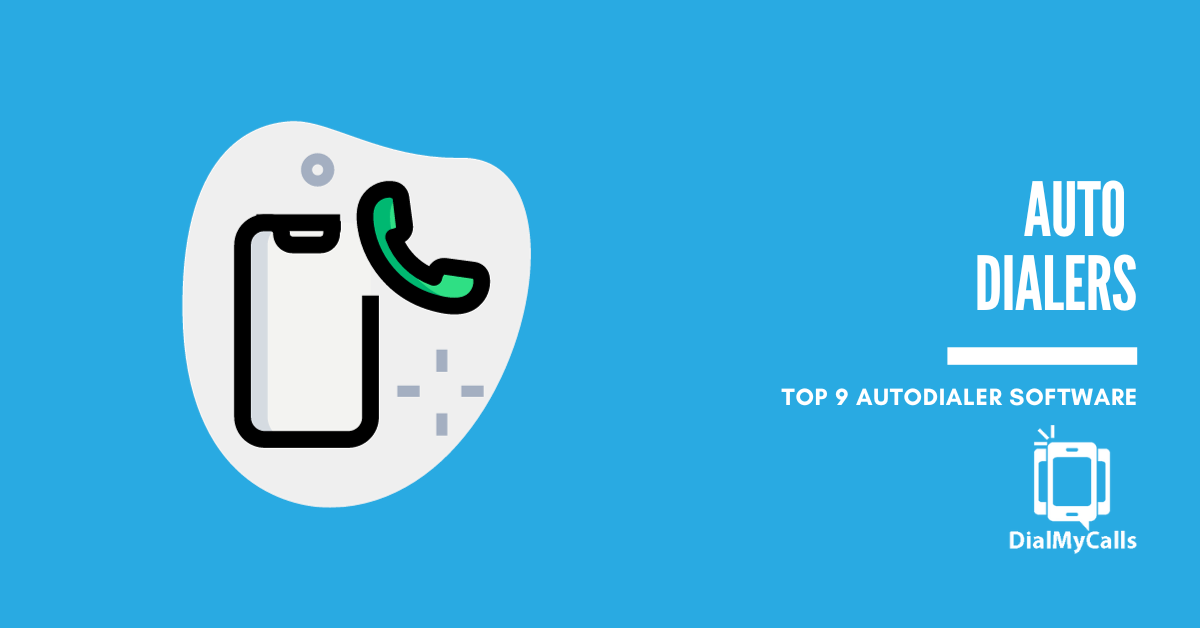Short Code SMS: The Ultimate Guide For 2024
Posted by Brooklin Nash in General Post on August 14, 2019
Updated on December 18, 2023
 Short code SMS is a text messaging tool for businesses requiring a mass texting service with extremely high message throughput capacity.While this type of phone number isn’t suitable for all types of organizations due to the prohibitive costs and other restrictions, they can be useful in some situations.So, in this article we explore what short code SMS is, why you’d want to use it, and everything else you need to know about these five to six digit codes.We’ll also detail more affordable and accessible options, like long code SMS.
Short code SMS is a text messaging tool for businesses requiring a mass texting service with extremely high message throughput capacity.While this type of phone number isn’t suitable for all types of organizations due to the prohibitive costs and other restrictions, they can be useful in some situations.So, in this article we explore what short code SMS is, why you’d want to use it, and everything else you need to know about these five to six digit codes.We’ll also detail more affordable and accessible options, like long code SMS.
What Is Short Code SMS?
Short code SMS is a five or six digit phone number used to send bulk text messages. It’s most popular among large businesses needing to send an extremely high volume of messages.They can also be useful for businesses that want to allow their audience to opt-in using SMS keywords. Because the short code number is easier to remember, it makes opting in to text message marketing communications a little easier.Additionally, short codes are highly regulated by network carriers, ensuring these numbers are never used to transmit spam. In fact, Common Short Code Administration (CSCA) administers all short codes in the United States.Overall, short code SMS is useful in some specific situations, but likely not the best option for most organizations.
Short Code SMS vs Long Code SMS
Short Code SMS and long code SMS are both good options for sending out mass text messages. However, there are distinct differences between the two.The most glaring difference is that short codes are five or six digit numbers, while long code SMS utilizes traditional ten digit phone numbers.Short codes are best utilized for expansive, broadcast-type marketing campaigns, alerts, and promotional activities. However, you can also use long code text messaging for this purpose, in addition to more personal, two-way communication.It’s also important to note that long code SMS is compatible with international messaging systems, while short codes are not. So, if you have a global audience, SMS short codes will not be suitable to your needs.Overall, if you need to send thousands of messages instantly, short code SMS can make the better choice. However, long code SMS tends to be more suitable for most organizations.
Types of Short Code SMS
There are three types of short code SMS. While one of them is no longer in use, we discuss all three types below.
Shared Short Codes (Phased Out In 2021)
Shared short codes were once a common type of Short Code SMS, where multiple businesses shared the same short code but used different keywords to differentiate their messages. This option was cost-effective and accessible for smaller businesses. However, due to challenges in regulating content and the increased risk of spam, shared short codes were phased out in 2021. This change was driven by mobile carriers’ efforts to ensure better security, control, and quality in mass text messaging practices.
Random Short Codes
Random short codes are assigned randomly to a business or organization by the Short Code Administrator. These codes do not hold any specific sequence or pattern, and businesses often choose them when looking for a cost-effective short code solution. They usually cost around $500 per month.While they lack the memorability of vanity codes, random short codes still offer the full benefits of short code messaging, such as high throughput and lack of carrier filtering. They are a practical choice for businesses prioritizing functionality and cost-efficiency over branding.
Vanity Short Codes
Vanity short codes, unlike the random numbers, are custom-selected by businesses to spell out a word or represent a brand in a more recognizable way. Businesses choose these codes for their ease of recall and branding potential, making them highly valuable for marketing campaigns. For example, a pet store might choose a code like ‘PETSS’ (73877). Vanity short codes are more expensive than random ones, typically around $1,000 per month. However, they do provide significant advantages in terms of brand recognition and customer engagement. This often makes them a preferred choice for high-profile marketing campaigns.
Advantages of Short Code SMS
High Throughput and Timely Delivery
One of the primary advantages of short code SMS is its high throughput. Short codes can send a large volume of messages in a short period, making them ideal for bulk messaging. This feature is crucial for businesses and organizations that need to disseminate information quickly and efficiently, such as during promotional campaigns or urgent alerts.While long codes can also send out bulk messages quickly, short codes can send messages even quicker.
Easy Memorability and Brand Recognition
Short codes, particularly vanity short codes, offer the benefit of easy memorability. Their shorter length makes them simpler for customers to remember compared to traditional long phone numbers. This aspect is vital in marketing, where the ease of recalling a contact number can significantly impact customer response rates. Vanity short codes take this a step further by allowing businesses to choose numbers that reflect their brand or campaign, thereby enhancing brand recognition.However, keep in mind that you can also use vanity long code phone numbers. This enables you to take advantage of brand recognition without the need for expensive short codes.
Spam Prevention
Another significant advantage of short codes is the level of regulation and monitoring by carriers. The oversight helps prevent spam, ensuring that messages sent from these codes are from verified sources. This regulation not only protects consumers, but also adds a layer of credibility to the messages, which can increase trust and engagement from the recipients.In fact, because of the regulatory hurdles in place, SMS short codes are not even subject to carrier filtering.However, it is worth noting that some people may find traditional phone numbers more trustworthy. While short code SMS is heavily monitored now, some recipients may still have memories of the more spammy short codes of years past.
Disadvantages of Short Codes SMS
Cost and Accessibility
One of the primary disadvantages of SMS short codes is the cost. Obtaining and maintaining a short code, especially a vanity short code, can be significantly more expensive than using long codes or other messaging alternatives. Generally, you can expect to spend anywhere from $500 to $1,000 to lease a short code. This higher cost can be a barrier for small businesses or startups with limited budgets. Additionally, the process of acquiring a short code can be lengthy and complex, involving approval from carriers and compliance with various regulations.On the other hand, with DialMyCalls, you get access to a free long code phone number.
Geographical Limitations
Short codes are typically country-specific, which limits their use for international campaigns. A business operating in multiple countries would need to obtain separate short codes for each country.Overall, this adds to the complexity and cost of their messaging strategy. Meanwhile, long code SMS numbers are compatible with international messaging systems.
Lack of Personalization
Short codes are less suited for personalized, two-way communications compared to long codes. While they’re excellent for broadcasting messages to a large audience, they do not facilitate detailed, personalized interactions with customers. This can be a limitation for businesses that require a more tailored approach in their communication strategies. With a DialMyCalls long code number, you can activate two-way text messaging to facilitate private, one-on-one conversations with your audience.
Confusing Regulatory Environment
The reliance on carrier approval and adherence to specific regulations can be a double-edged sword. After all, changes in carrier policies or regulatory environments can impact the use of short codes, potentially disrupting ongoing campaigns or messaging strategies. Meanwhile, long code SMS is more likely to carry on in a more stable and less confusing regulatory environment.
Who Uses SMS Short Codes?
While long code is suitable for most mass texting applications, there are some instances in which short code SMS may be preferable. Below, we discuss some of its most common use cases.
Marketing and Retail
In the marketing and retail industries, SMS short codes can be useful for driving sales and customer engagement. Businesses often use them to send instant notifications about new product launches, exclusive deals, and flash sales, tapping into the urgency and convenience that short codes provide. This method is especially effective for time-limited offers, encouraging immediate customer action, and enhancing the shopping experience through timely updates.It’s worth noting that long code SMS numbers can work just as well for many businesses. However, for very large businesses with an extremely high throughput of messages, short code SMS may be preferable.
Media and Entertainment
Short codes in media and entertainment serve as a direct line to audiences, fostering interaction and loyalty. TV shows and radio programs often use them for audience voting, enabling viewers and listeners to participate in real-time. This engagement not only increases audience involvement, but also provides valuable feedback and data to the media companies, helping them tailor content to audience preferences.
Financial Services
In financial services, the use of short codes adds an extra layer of security to customer communication. They allow banks and financial institutions to send real-time alerts for transactions, potential fraud warnings, and regular account updates. Overall, this helps ensure customers stay informed about their financial activities. After all, rapid communication is crucial for preventing fraud and promoting financial awareness among customers.
Travel and Hospitality
The travel and hospitality industry uses short codes to enhance customer service and operational efficiency. For example, airlines, hotels, and travel agencies send flight changes, booking confirmations, and promotional offers directly to customers’ phones. This use of short codes improves customer experience by providing timely and convenient travel updates, helping travelers stay informed and reducing the stress of travel logistics.
Short Code SMS Examples
Wondering what SMS short codes look like in action? Then check out these short code SMS examples below:
- Promotional Campaigns: “Text SALE to 12345 to receive exclusive discounts on our new product line!”
- Voting or Polling: “Vote for your favorite artist! Text ‘ARTIST A’ to 54321.”
- Event Information: “For updates on our annual Tech Conference, text TECH to 67890.”
- Customer Feedback: “Rate our service! Text a number from 1-5 to 23456. Your feedback is valuable.”
- Emergency Alerts: “For real-time weather alerts, text WEATHER to 78901.”
- Appointment Reminders: “Reminder: Your dental appointment is on 12/12 at 3 PM. Reply YES to confirm. Text to 34567.”
- Charity Donations: “Text GIVE to 45678 to donate $10 to the Disaster Relief Fund.”
- Subscription Services: “Subscribe to daily health tips! Text HEALTH to 56789.”
- Contest Entries: “Enter our lucky draw! Text WIN to 67890 with your name and email.”
- Two-Factor Authentication: “Your verification code is 543210. Enter this code to complete your login.”
How To Get An SMS Short Code
Obtaining an SMS Short Code is a process that involves several steps, from choosing the right type of code to navigating regulatory requirements. We explain the steps to getting your SMS short code below.
1. Determine The Right Type of Short Code
The first step is to decide whether a random or a vanity short code suits your needs. A random short code is assigned arbitrarily and is typically less expensive. Meanwhile, a vanity short code is chosen for its memorability and branding potential, but comes at a higher cost.
2. Choose A Short Code Provider
Next, you need to identify a reputable short code provider or a messaging services company. These providers will assist you in the process, including code selection, application, and setup. It’s important to choose a provider that has experience and a good track record in the industry.
3. Apply For A Short Code
Once you’ve selected a provider, the next step is to apply for the short code. This involves filling out an application with the Common Short Code Administration (CSCA). The application will require details about your business and how you intend to use the short code.
4. Wait For Approval
After submitting your application, there is usually a waiting period for approval. The approval process includes a review by carriers, which ensures that your intended use of the short code complies with industry standards and regulations.
5. Set Up And Test Your Short Code
Finally, once approved, you’ll set up the short code with your provider. This setup involves integrating the short code with your messaging platform and ensuring it works correctly with all relevant carriers. It’s crucial to thoroughly test the short code to confirm that it can send and receive messages as expected.
Is There A Free SMS Short Code Service?
Unfortunately there is no free SMS short code service. In fact, short codes are the most expensive type of phone number for bulk texting. You can expect to pay between $500 and $1,000 per month to lease a short code number.
List Of Common SMS Short Codes
Many different types of organizations utilize SMS short codes in their communication. Below is a list of some of the most recognizable and common SMS short codes as of December 2023:
- 741741: Crisis Text Line
- 262966: Amazon Shipment Updates
- 22000: Google Verification
- 22395: MailChimp Verification
- 32099: Facebook 2FA
- 21523: Dancing with the Stars
- 21015: CBS Radio Programming
- 75577: CVS Pharmacy
- 91955: GoDaddy Verification Code
- 86753: Venmo Verification
- 22471: SixFlagsSweeps
- 68359: Netflix Verification
- 40404: Twitter Confirmation
- 72166: JPMorgan Fraud
- 80101: Capital One
- 774636: Planned Parenthood
These are just a few examples of SMS short codes. As you can see, they tend to be used by large organizations with the need for extremely high message throughput capacity.
How Do You Find Out Who Owns An SMS Short Code?
Finding out who owns an SMS Short Code can be important for various reasons. For example, you may want to identify the source of messages you’re receiving. Or, businesses may want to do some research to avoid choosing a number that’s already in use.Whatever the reason, figuring out who owns a short code is relatively simple. First, you need to visit the TextingWorld directory. From there, you can easily search for any SMS short code, and view information related to the number like:
- Company
- Contact Phone Number
- Physical Address
- URL
- Name of the SMS Program
- Date Registered
Should You Use SMS Short Codes?
If you’re a large business with a huge national presence and the need for a high message throughput capacity, purchasing an SMS short code may be worth it.However, for most businesses and organizations, a traditional long code SMS number should be more than sufficient.Overall, it really depends on your organization type, size, and the goals of your campaign. To start sending mass texts via a long code phone number, sign up for DialMyCalls today!
Sign Up For A Free Trial Today!
Get Started
Recent Posts
Categories
“I am a youth minister and have spent hours in the past calling students individually to remind them of an upcoming event or to get out an urgent announcement. With DialMyCalls.com, I cut that time down to about 1 minute. I also love how I can see exactly who answered live and how long they listened so I know if they heard the whole message. DialMyCalls.com is the best website I have stumbled upon all year! Thanks!”
Central Baptist Church
Sign Up For A Free Trial Today!
Get Started
Sign Up For A Free Trial Today!
Get Started
Recent Posts
Categories
“I am a youth minister and have spent hours in the past calling students individually to remind them of an upcoming event or to get out an urgent announcement. With DialMyCalls.com, I cut that time down to about 1 minute. I also love how I can see exactly who answered live and how long they listened so I know if they heard the whole message. DialMyCalls.com is the best website I have stumbled upon all year! Thanks!”
Central Baptist Church
Sign Up For A Free Trial Today!
Get Started


